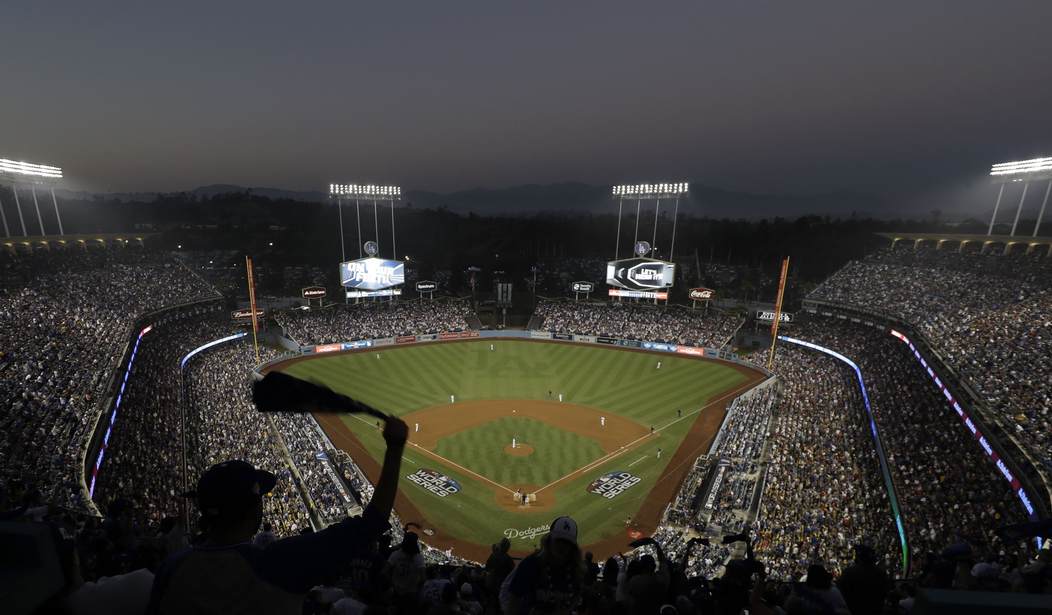Much has been made on the right about the decision by Major League Baseball to move the All-Star game from Atlanta to Denver, ostensibly in “solidarity” with those opposed to the changes in election law passed by the GOP-controlled legislature.
I was critical of the decision at the time, and remain critical of the explanation that was given — essentially that the State of Georgia had sought to wrongfully suppress the ability of minority voters to cast ballots. Most objective analyses of the Georgia law show that the changes put in place bring Georgia in line with many other states and that there are Democrat-controlled states with much more restrictive voting laws than Georgia — most notably Delaware, the home state of Joe Biden.
So I see the public justification given by Major League Baseball of ridiculous “virtue signaling” of the first order with the move being justified as “demonstrating our values as a sport.”
But a more plausible and persuasive explanation for why Major League Baseball did what it did has emerged in the past few days in various places.
The controversy erupted into public view only a couple of days ahead of Opening Day, April 1. The controversy gained widespread attention in the media as much anger and criticism were directed at the Georgia GOP which pushed through the changes.
This created two problems for MLB — a short-term PR headache that was going to overshadow all the opening weekend games without any resolution to the controversy, but also a much more bothersome long-term problem.
It is a virtual certainty that if MLB had not caved in to the pressure at the league level, the left-wing interest groups agitated over the issue would have shifted their efforts towards pressuring individual players who were likely to be voted by fans to play in the game.
The MLB All-Star game over the past 20 years has become an event where some of baseball’s biggest stars decline to play in order to have a 4-day break in the middle of the grind of 162 game schedule. But the prospect of having a large number of the sport’s best players publicly decline to participate because of where the game was being played was a potential PR nightmare that would last for weeks, and continue right up to the start of the game — if there was a game.
As more and more players would likely announce their intention to boycott the game under pressure from media and players in other sports — like LeBron James — a cascading effect would have like developed where the outcome might have ultimately have been that no players agreed to play.
If some players did agree to play — say some white players — the potential for conflict inside the locker rooms of MLB clubs between boycotting players and non-boycotting players would escalate. The fallout for the sport in the aftermath of such a development would be disastrous.
This is worst-case scenario planning, and there was no good option if the worst-case scenario developed. The only way to avoid the possibility of the worst-case scenario was to take it out of the equation by moving the game and eliminating the risk of a players’ boycott.
This was not MLB’s problem to adopt and live with. MLB didn’t create the current political environment, and MLB should not be expected to suffer the burden of a political war over voting rights/integrity as a warrior on either side.
MLB did itself no favors by putting forth the “our values” explanation as transparent virtue signaling. The explanation offered above would have been coherent and defensible — going forward with the game in Atlanta was highly likely to cause dissension and division between players forced by public and political pressure to choose. The logical endgame for such conflict would have been an outcome where there was no game due to a complete player boycott — only it would be too late by that time to plan for an alternative venue. So they pulled the plug on Atlanta when they still could, and will come back to Georgia for a future game when the controversy has dissipated.
The injury done to Atlanta remains. But that is the fault of the agitators on the left who demanded action. Voters of Georgia should remember that, and place the blame where it rightfully belongs for the loss of the game and revenue to the community in 2021.














Join the conversation as a VIP Member